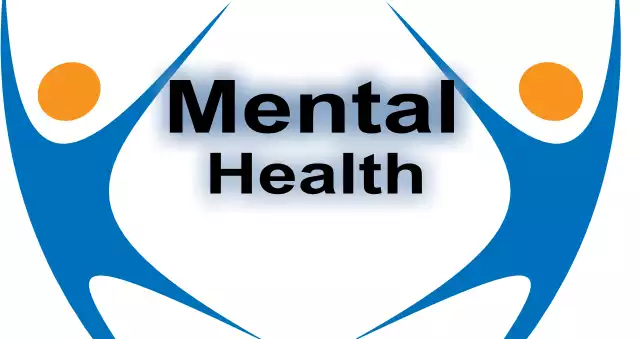Mental health is essential for overall well-being
Mental health issues increase the risk of physical health problems like stroke, type 2 diabetes, and heart disease.
Anxiety and chronic stress can weaken the immune system, making one more susceptible to infections and chronic conditions.
Depression can make it difficult for people to have healthy and satisfying relationships.
Mental disorders can also affect productivity, as people with these conditions may have difficulty concentrating, resulting in lower performance in work or school.
Furthermore, mental health is essential for personal fulfillment, as it directly impacts our thoughts, emotions, and behaviors.
Without good mental health, it’s difficult to find joy and satisfaction in life.
That’s why it’s crucial to address mental health issues proactively and seek help when needed.
By doing so, individuals can lead healthier, happier, and more fulfilling lives.
Is it possible for your mental health to change as time goes on?
Yes, a person’s mental health can change over time due to various factors.
An overwhelming workload can lead to stress, anxiety, and burnout, impacting one’s mental well-being.
Caregiving responsibilities, such as caring for a sick family member or raising children, can also contribute to mental health challenges.
Financial stress, including debt, unemployment, or struggling to make ends meet, can further exacerbate these issues.
Improving mental health involves seeking therapy or counseling to address underlying issues and develop coping strategies.
Practicing relaxation techniques, such as meditation or deep breathing, can help manage stress and promote a sense of calm.
Making lifestyle changes, like prioritizing self-care, staying physically active, and maintaining a healthy diet, can also positively impact mental well-being.
It is crucial to recognize changes in mental health and take proactive steps to address them.
You can talk to a healthcare professional, confide in a trusted friend or family member, or seek support from a mental health organization.
By acknowledging and addressing mental health concerns, individuals can work towards maintaining and improving their overall well-being.
What is the prevalence of mental illnesses?
Anxiety disorders, mood disorders, and schizophrenia are the most common mental health disorders in the United States.
About 31% of adults experience anxiety disorders, like generalized anxiety disorder and panic disorder, at some point in their lives.
These disorders can cause excessive worry, fear, and stress, impacting daily functioning and quality of life.
Mood disorders, including depression and bipolar disorder, are also common, affecting around 21% of adults.
These disorders can cause long-lasting feelings of sadness, hopelessness, and mood swings, which can make it hard to have good relationships, perform well at work, and do everyday tasks.
Schizophrenia affects about 1% of the population. It is a serious and long-lasting mental illness that can cause delusions, hallucinations, and disorganized thinking.
This disorder can significantly impair one’s ability to function in daily life and may require long-term treatment and support.
These mental health disorders are common and have a big impact on people. We need mental health services that are easy to access and effective to help those who are affected.
What are the factors contributing to mental illness?
Multiple factors can cause mental illness, such as a difficult childhood, genetics, and substance abuse.
Childhood experiences like trauma, neglect, or abuse can lead to mental health problems in adulthood.
Mental illnesses can be influenced by biological and genetic factors, such as genetics or brain chemistry.
Substance use, such as alcohol or drug abuse, can also contribute to the onset of mental illness.
There are different types of mental illnesses and disorders, including depression, anxiety disorders, schizophrenia, and bipolar disorder.
Conditions can differ in their duration, with some people having ongoing symptoms and others experiencing intermittent episodes.
Some individuals may have continual symptoms while others may have times when the symptoms lessen or disappear.
Many things can increase the chances of having mental health issues, such as experiencing trauma or abuse, having biological or genetic factors, and having a family history of mental health problems.
It’s important to consider these factors when assessing an individual’s mental health and seeking appropriate treatment.
To better help people dealing with mental illness, it’s important to understand what causes it and the risk factors involved.
Promoting and preventing mental health issues.
Mental health promotion and prevention strategies involve a multi-sectoral approach, involving various sectors such as education, labor, justice, and welfare.
Important actions include teaching people about mental health in schools, raising awareness about mental health at work, providing mental health assistance in the justice system, and offering mental health services in welfare programs.
Preventing suicide is a top priority worldwide. This involves raising awareness, offering mental health support and resources, and implementing proven interventions.
Child and adolescent mental health is a pressing issue. It is important to focus on early intervention and providing accessible mental health services.
Interest in promoting and protecting mental health at work is increasing. This includes focusing on legislation, regulations, and organizational strategies to support the mental well-being of workers.
Interventions to improve mental health at work include promoting work-life balance, providing mental health resources, and offering mental health training for managers and employees.
Overall, the promotion and prevention of mental health require a comprehensive, multi-faceted approach involving various sectors and stakeholders.
This is important for solving the global mental health crisis and promoting well-being at all stages of life.
Improving mental health care and treatment.
Mental health care and treatment are essential aspects of overall well-being and should be a priority for everyone.
From therapy and counseling to medication and lifestyle changes, there are many different approaches to addressing mental health concerns.
Seeking professional help and support is crucial in managing conditions such as depression, anxiety, bipolar disorder, and many others.
Mental health care is not the same for everyone. It may take time and patience to find the right therapies and interventions for each person.
We’ll discuss mental health care, therapy, medication options, and lifestyle changes to support mental well-being.
We will also discuss the importance of seeking help when needed and breaking down the stigma surrounding mental health issues.
The main goal is to help people understand mental health care and treatment and encourage them to take charge of their mental well-being.
Taking care of your mental health.
Self-care is essential for maintaining good mental health.
Taking care of oneself plays a crucial role in supporting treatment and recovery for mental illness.
Self-care can impact emotional, psychological, and social well-being by helping individuals cope with the stresses of life.
Taking care of yourself is important for your mental health.
This includes things like exercising regularly, eating well, getting enough sleep, and having a support network of friends. And people need to care about themselves.
Relaxing, doing leisure activities, practicing mindfulness and meditation, setting boundaries, and seeking help when needed are important for self-care.
Self-care not only helps individuals to manage symptoms of mental illness but also supports their overall mental well-being.
Regular practice of a certain activity can help people handle stress better, decrease symptoms of anxiety and depression, and improve their quality of life.
Implementing self-care strategies helps individuals build resilience, manage their mental health better, and support their recovery journey.
In conclusion, self-care is crucial for maintaining mental health, supporting treatment and recovery, and promoting overall well-being.
It is important for individuals to prioritize and incorporate self-care practices into their daily routines to ensure good mental health.
Anxiety and panic attacks are common mental health conditions.
Excessive anxiety is when it goes beyond a natural response to stress. It can cause symptoms like excessive worry, restlessness, irritability, muscle tension, and difficulty concentrating.
Panic attacks are sudden and intense episodes of fear and anxiety. They usually come with physical symptoms like a fast heart rate, sweating, shaking, and chest pain.
Causes of anxiety and panic attacks can include genetics, brain chemistry, and stressful life experiences. Treatment options may include therapy, medication, and lifestyle changes such as regular exercise and stress management techniques.
Examples of anxiety disorders include generalized anxiety disorder, social anxiety disorder, and panic disorder.
Disorders can greatly affect daily life by making it hard to do everyday tasks, maintain relationships, and take part in social activities.
It’s important to seek professional help if you or someone you know is experiencing symptoms of anxiety or panic attacks. With proper treatment, individuals can learn to manage and reduce their symptoms, improving their overall quality of life.
Bipolar disorder
It’s a mental health condition that causes extreme mood swings, from high-energy manic episodes to low-mood depressive episodes.
Symptoms of bipolar disorder may include drastic changes in energy, activity levels, sleep patterns, and behavior.
Treatment options vary and may include medication, therapy, and lifestyle changes.
People with bipolar disorder should have coping strategies like keeping a consistent routine, staying physically active, and avoiding alcohol and drugs.
There are different types of bipolar disorder: bipolar I, bipolar II, and cyclothymic disorder. Each type has different levels of mood changes and intensity.
Bipolar disorder greatly affects a person’s mood, relationships, work, and overall well-being.
Seeking professional help and support from friends and family is crucial for managing bipolar disorder.
Working closely with healthcare professionals and having a strong support system are essential for individuals to find the right treatment plan and overcome the challenges of the disorder.
Knowing the symptoms, treatments, and types of bipolar disorder can help people affected and their loved ones better deal with the condition.
Body dysmorphic disorder (BDD) is a mental health condition.
BDD is a mental health condition that causes a person to obsess about their perceived flaws or defects in their appearance.
People with BDD often spend too much time and effort obsessed with their looks. This can cause them to feel upset, anxious, and have trouble with daily activities.
BDD symptoms include repetitive and compulsive actions like constantly checking one’s appearance in mirrors, seeking reassurance about their looks, and doing excessive grooming or cosmetic procedures.
The causes of BDD are not fully known, but it likely involves a mix of genetics, psychology, and environment.
Treatment for BDD usually involves a mix of therapy, like cognitive-behavioral therapy (CBT), and medication, such as selective serotonin reuptake inhibitors (SSRIs).
To get treatment and support for BDD, you can reach out to mental health professionals like therapists or psychiatrists.
Self-help tips for managing BDD may include practicing self-care, challenging negative thoughts, and seeking social support.
To support someone, friends and family should be understanding and patient, encourage them to seek professional help, and avoid making critical comments about their appearance.
People with BDD can improve their quality of life by getting the right treatment and support.
Borderline personality disorder (BPD) is a psychological condition.
Borderline personality disorder (BPD) is a mental illness that causes emotional instability, impulsive actions, unstable relationships, and a warped self-image.
Individuals with BPD often experience extreme mood swings, fear of abandonment, and difficulties in managing their emotions. They may also engage in self-harming behaviors and have a history of unstable interpersonal relationships.
The cause of BPD is unclear, but genetics, environmental factors, and childhood trauma may contribute to it.
Treatment for BPD typically includes therapy, medication, and support groups.
DBT is a very effective therapy for helping people deal with their symptoms and improve their quality of life.
Support for people with BPD is important. Taking care of yourself through exercise, eating well, and managing stress can also help manage symptoms.
To support someone with BPD, friends and family should educate themselves about the condition, be patient and understanding, set clear boundaries, and encourage the person to seek professional help when necessary.
Loved ones should prioritize their own well-being and seek help from mental health professionals or support groups.
Depression
About 15-20% of people will experience depression at some point in their lives.
This mental illness affects many people, with an estimated number of cases ranging from 2,000 to 4,000 per 100,000 people.
Depression has a big impact on people. It reduces productivity, makes life worse, and increases healthcare costs.
Accessing treatment and support is crucial for those suffering from depression.
Seeking help from mental health professionals such as therapists, counselors, or psychiatrists can provide valuable support and guidance.
Additionally, medication and cognitive-behavioral therapy are effective treatment options.
To support friends and family, it is important to offer non-judgmental support, be a good listener, and encourage them to seek professional help.
Community organizations, support groups, and online resources also offer valuable assistance.
It is important to recognize the signs of depression and seek help early to prevent further complications. With the right treatment and support, individuals with depression can lead fulfilling and productive lives.







